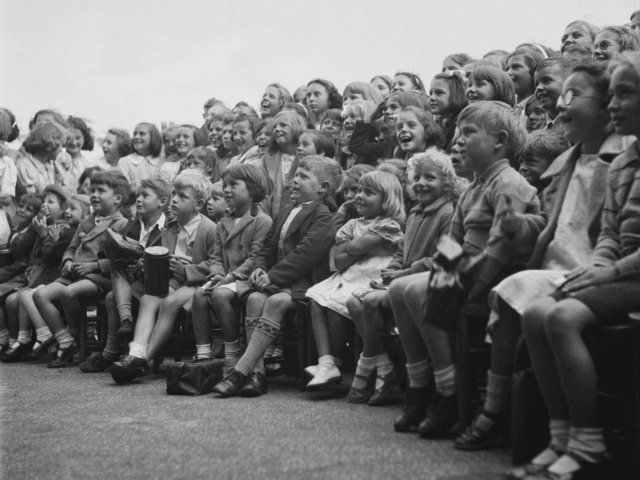Despite Britons largely being confined to their homes, pregnancies fell to a 17-year low during the first year of Chinese coronavirus lockdowns.
According to figures compiled by Britain’s Office of National Statistics (ONS), there were 817,515 conceptions recorded among women between the ages of 15 and 44 in 2020.
The figures for the first year of lockdown restrictions in the UK reflect the lowest number of pregnancies logged since 2003, despite predictions of a baby boom due to couples being forced to stay inside by the government for much of the year.
Yet, 2020 continued the overall trend of falling pregnancies, which have decline every year since 2015 when 876,934 conceptions were recorded.
The ONS noted, however, that there has been an increase in older women becoming pregnant, with a record high of 17.1 out of every 1,000 women in their 40s experiencing a pregnancy in 2020.
Women between the age of 30 and 34 represented the highest number of conceptions for the fourth consecutive year, with a record high of 248,528 conceptions in 2020. Conversely the pregnancy rate for those under the age of 18 fell by 17 per cent.
The first year of lockdown also saw the percentage of conceptions leading to legal abortions increase for the sixth year in a row, with 25.3 per cent of conceptions leading to abortions in 2020.
Destruction of the British Family: Marriage Rate Falls to Lowest in Recorded History https://t.co/WLXVu02vjF
— Breitbart London (@BreitbartLondon) April 16, 2020
The head of Health and Life Events Analysis at the ONS, Dr James Tucker said: “Today’s data show there was an overall drop in conceptions in England and Wales in 2020. Although it may be expected that this would have led to a drop in births in 2021, provisional births data indicate that 2021 births actually increased, but that this varied over the year.
“The first half of 2021 saw a decrease in births, all of which would have been conceived in 2020 when conceptions decreased; while the second half of 2021 saw an increase in births, which related to conceptions at the end of 2020 and beginning of 2021.”
“The figures also show conceptions among women aged over 30 years have risen, while continuing to drop for those in the younger age groups. This release is our first look at conception rates during the coronavirus (COVID-19) pandemic, when lockdowns and restrictions may have affected behaviours; it is possible conception rates during this time were impacted differently across the different age groups of women.”
Priti Patel’s ‘Economically Inactive’ Comments Betray UK Govt’s Hostility to Traditional Family https://t.co/NsSuUcYD3Q
— Breitbart London (@BreitbartLondon) February 20, 2020
The fertility rate in England and Wales also fell dramatically during the first year of the Chinese coronavirus crisis, declining to a record low of 1.58 children per woman in 2020, falling by 4.2 per cent over the previous year.
The fertility rate, which is determined by calculating the number of children a woman will have in her lifetime, saw its steepest decline among the native British population, falling to 1.5 children per native British woman. In contrast, the foreign population saw its fertility rate increase to 1.98 per cent, with the largest number of foreign parents hailing from Pakistan.
In September of last year, the Social Market Foundation (SMF) warned that the UK could face a “baby shortage” which could lead to longterm economic ramifications. The think tank credited the high cost of raising children in Britain and the failure of successive Conservative governments to enact pro-family policies to ease the financial burden of child rearing.
The SMF noted that while the UK has relied heavily on mass migration to maintain population growth, this may not be viable in the long-term if other countries also begin to experience declining birth rates.
In contrast to Britain, which has actually enacted anti-family taxation policies such as having higher tax rates for single earner families than two earner, socially conservative governments in Eastern Europe have successfully turned around their falling birth rates through the use of policies such as providing tax breaks for mothers.
UK: One Third of Babies Born to Foreign Mothers, as Fertility Rate Falls to Lowest Level Since Before World War II https://t.co/xrTG5fBqWU
— Breitbart London (@BreitbartLondon) July 23, 2020
Follow Kurt Zindulka on Twitter here @KurtZindulka

COMMENTS
Please let us know if you're having issues with commenting.